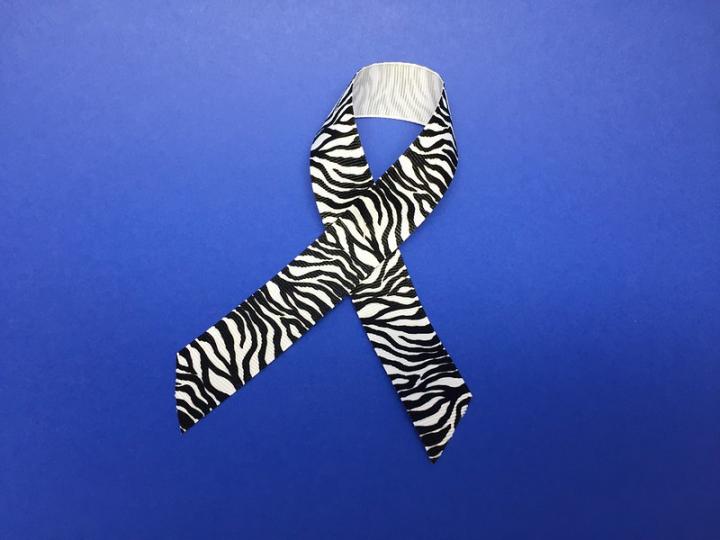Enrollment begins at NIH Clinical Center

Credit: NIAID
A study assessing how people with immune system deficiencies or dysregulations respond to COVID-19 vaccination has begun enrolling participants at the National Institutes of Health Clinical Center in Bethesda, Maryland. The single-site study is led by researchers from the National Institute of Allergy and Infectious Diseases (NIAID) and aims to enroll 500 people, 400 with primary or secondary immune system disorders and 100 without such conditions.
“Through large Phase 3 trials, several experimental COVID-19 vaccines were shown to be safe and effective and three are now authorized by the U.S. Food and Drug Administration for emergency use in the United States,” said NIAID Director Anthony S. Fauci M.D. “People with immune disorders are typically excluded from trials of experimental vaccines, and this was the case in the COVID-19 vaccine trials. This new study will characterize the features and adequacy of immune responses to COVID-19 vaccination in people with a range of immune deficiencies and dysregulation syndromes and will provide valuable information about benefits and potential risks in these individuals.”
In addition to analyzing how they respond to vaccination, the study team will gather information about COVID-19 illness in people with immune deficiencies and dysregulation conditions.
“Currently, there are few published studies on the incidence and clinical presentation of COVID-19 disease in people who have immune deficiencies, especially those who have inborn conditions involving deficits or dysregulations in antibody or cell-based immune responses to infections,” said study principal investigator Emily Ricotta, Ph.D., MSc, of the NIAID Laboratory of Clinical Immunology and Microbiology. “Our study aims to fill this knowledge gap.”
Potential volunteers may be identified and invited to join the new study through existing NIH study protocol pools of healthy volunteers or via existing protocols involving persons with immune system disorders. Healthcare providers also may refer their patients with immune deficiencies or dysregulation conditions for enrollment. Initially, the study will enroll participants 16 years of age and older. If COVID-19 vaccines are authorized for use in younger people in the future, the enrollment age criterion could expand to include them.
All study visits can be conducted either in person at the NIH Clinical Center or remotely. Participants may be enrolled if they are completely or partially vaccinated against COVID-19. If a volunteer has not yet been vaccinated, they will provide a blood sample to investigators seven days prior to receipt of an FDA-authorized COVID-19 vaccine. Study participants can receive any authorized COVID-19 vaccine in their local communities. Depending on which manufacturer’s vaccine a participant receives, additional blood samples will be collected between 14 and 28 days after the first dose. Participants who receive vaccine that is administered as a two-dose regimen will provide an additional blood sample between 21 and 28 days after the second vaccine dose. Participants who receive the one-dose Johnson & Johnson COVID-19 vaccine will provide a single blood sample between 21 and 28 days after vaccination.
Blood sampled before and shortly after vaccination will be used to study short-term immunological effects of immunization. Participants have the option to provide additional samples approximately six, 12 and 24 months after the last dose. These samples will permit the researchers to assess the persistence of vaccine-induced antibodies and T-cell responses and to compare responses made by people with and without immune system disorders. If vaccine “booster” injections are recommended in the future, volunteers may choose to provide additional blood samples following those booster vaccines.
At enrollment, participants will be asked if they have been diagnosed with COVID-19 in the past and about symptom severity, using standardized questionnaires.
“This will allow us to characterize the different manifestations of COVID-19 illness in the study population and to determine what influence these may have on the immune response to COVID-19 vaccination,” said Dr. Ricotta.
Participants also will have the option to be screened for SARS-CoV-2 infections following vaccination using at-home saliva collection kits that they will return to the NIH biweekly for six months. (SARS-CoV-2 is the virus that causes COVID-19.) During multiple follow-up timepoints in the trial, participants will be asked about any vaccine-related adverse events, which will allow the study team to better understand safety and tolerability of the vaccines in people with specific immune deficiency or dysregulation disorders.
“The information we gather on how well COVID-19 vaccines protect these specific populations and about any adverse events experienced by those with immune dysregulation or other disorders will aid decision-making about vaccination,” said Steven Holland, M.D., director of the NIAID Division of Intramural Research, and the study’s medically responsible principal investigator.
###
More information about the study is available at ClinicalTrials.gov by searching on the identifier NCT04852276. Study staff may also be contacted by those interested in participating at [email protected].
NIAID conducts and supports research–at NIH, throughout the United States, and worldwide–to study the causes of infectious and immune-mediated diseases, and to develop better means of preventing, diagnosing and treating these illnesses. News releases, fact sheets and other NIAID-related materials are available on the NIAID website.
About the National Institutes of Health (NIH): NIH, the nation’s medical research agency, includes 27 Institutes and Centers and is a component of the U.S. Department of Health and Human Services. NIH is the primary federal agency conducting and supporting basic, clinical, and translational medical research, and is investigating the causes, treatments, and cures for both common and rare diseases. For more information about NIH and its programs, visit http://www.
Media Contact
Anne A. Oplinger
[email protected]




